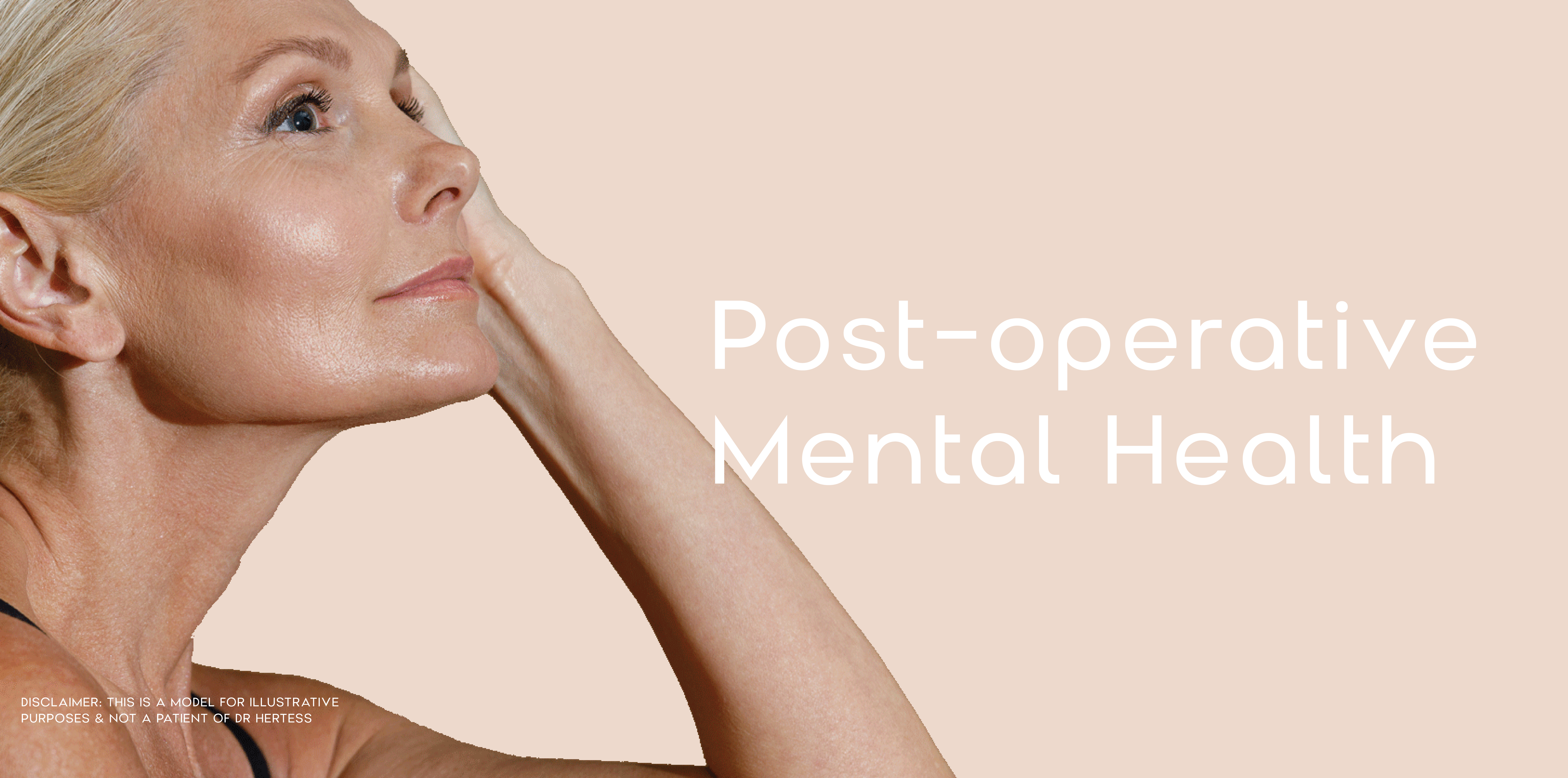January 21, 2024
Post-operative Mental Health
Author:
Dr Isolde Hertess
2-minute read

Post-operative Mental Health
Following cosmetic and plastic surgery it is quite common to experience low moods. Big changes to your body and the stress that it has been under will contribute to a brief period of depression. It’s important to be aware of why and how this occurs, and what you can do to reduce the severity of it.
Due to the body undergoing something as stressful as surgery, it’s not a surprise that your mental health is effected. Sleep disruption, not being able to exercise, (we know that exercise releases endorphins, which elevates our mood), pain management, being bed bound for a period of time and among other variables can cause low mood and irritability.
It’s important to understand that:
- Not being able to exercise and being immobile for a long period of time can cause a drop in your mood. It will be some time before you can exercise again, so be aware that this can affect your mental health temporarily. Don’t rush things, and always consult your doctor before entertaining any kind of exercise.
- Pain management after surgery can be difficult and uncomfortable. The initial pain can be unsettling, resulting in some unexpected emotions. Due to the fatigue caused by pain medication, patients can feel drowsy which can also contribute to a low mood. Your recovery can come with physical ailments, like nipple sensitivity, numbness around the breasts, wound management and scarring. Be patient in this process and know that this too shall pass.
- Even if your surgery outcomes are very positive, post-operative depression, although temporary, is common. It all takes time, physical healing and mental healing. Your low moods will likely subside in a week or two. If you find they are persistent, it is important to see a mental health professional to talk about your options and a treatment plan.

- Having realistic expectations about your surgery outcome can avoid disappointment, and in turn reduce a low mood once you are home. Honest consultations with your surgeon can also help to avoid this. Do not expect perfection, but do expect improvement.
- Prior to undergoing your surgery journey, it’s important to sit with yourself and acknowledge your motivations for surgery. Make sure you are doing it for yourself only, and not for a partner or someone else in your life. If you suffer from extreme self esteem issues or body dysmorphia, surgery is not the answer. You may wish to speak to a mental health professional before surgery to give you clarity on your emotions regarding the upcoming procedure. It is also a good idea to follow up with your mental health support system after surgery.
- If you have a history of depression, anxiety or body issue concerns, carefully consider that this may not change once you have undergone a procedure.
- Although post-operative periodic depression is common, it’s important to have a game plan to handle it. Have your support team in place, loved ones and close friends who can help you during these times. Not only with the physical recovery at home, but also to be an ear when you need to talk and express your emotions.

- General anaesthesia residue can last in the body for up to 3-4 weeks and has both physical and emotional symptoms like fatigue and depression. Sit tight during this time and know that this is not permanent and is often part of the journey.
- Seeing your breasts directly after surgery can be confronting as bruising and swelling will be visible. This can cause distress and anxiety in patients. Although all bruising and swelling is completely normal, you’ll still feel initial shock.
- If you’ve had a breast augmentation, the implants will take time to settle into their new position, and bruising, scarring and swelling will take time to subside. Due to the appearance directly after surgery, patients can panic and assume this is the final result. It’s important to know that this is not the final outcome of your surgery, it is temporary!



